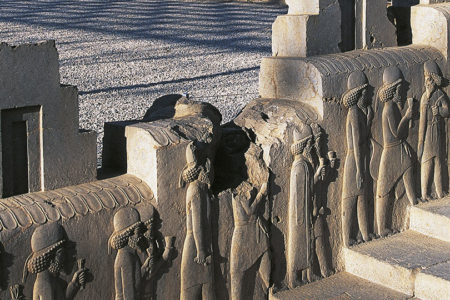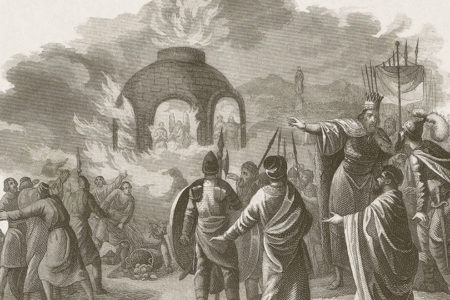Daniel or Denial?
Although the text of the book of Daniel is the same for Christians and Jews, profound differences exist in its interpretation. If understood literally and historically, the book is easy to explain. If not understood literally, God’s incredible control of the world is reduced to meaningless fable.
The narrative is simple: Around the sixth century B.C., King Nebuchadnezzar and the Babylonians took many Jewish people captive. One was a young man named Daniel who remained steadfast and faithful to the God of his fathers. Possessing a God-given ability to tell and interpret dreams, he used that ability for Nebuchadnezzar and was promoted to a position of great stature and power in the government. He became an authority throughout the kingdom of Babylon and then Persia.
Daniel also received apocalyptic visions from the Lord, providing an understanding of Israel’s Messiah, world history, and the future Messianic Kingdom.
As Bible-believing Christians, we accept the literal account, viewing Daniel as a prophet much like Isaiah, Jeremiah, and Ezekiel. We believe the book is crucial to understanding Jesus and His Second Coming, and we see it as key to understanding the New Testament book of Revelation.
The Jewish interpretation is quite different. The accepted commentary (Midrash) is often regarded as more important than the text itself. Because the apocalyptic portions of the text are associated with Christian teaching, Jewish interpreters remove the prophetic implications: “Daniel was evidently considered a prophet at Qumran and elsewhere in early Judaism (Josephus, Antiquities 10.266-68), but because prefigurations of Christ and Christian resurrection were seen in Daniel by the early church, the rabbinic tradition hesitated to embrace the visions of Daniel.”1
Daniel’s placement in the Jewish Bible is also used to justify a nonliteral interpretation. The Jewish Scriptures are divided into three distinct parts: Torah (the Law), Neviyim (the Prophets), and Ketuvim (the Writings). The Ketuvim consist of Psalms, Proverbs, Job, Song of Songs (Solomon), Ruth, Esther, Ezra, Nehemiah, 1 and 2 Chronicles, and Daniel. Most Jewish people regard the Writings as less inspired than the Law or Prophets. Consequently, Ruth, Esther, and Daniel are regarded as fictional.
Jewish scholars who do regard Daniel as apocalyptic believe it was written during the Maccabean period, rather than in 537 B.C, about 375 years earlier, as evangelical scholars believe. The later date makes it impossible for Daniel to have been the author and turns the prophecies about Antiochus IV (Dan. 11:21–35) into past history. The Jewish Study Bible speaks of “the anonymous author.”2
In an effort to explain away difficulties with the text, chapters 1 through 6 are considered “legends” of “the adventures of Jewish heroes,” while chapters 7 through 12 are apocalyptic visions, “revelations of the events that lead to the cataclysmic end and transformation of history.”3
The assumption seems to be that Daniel acts like a prophet; but because he can’t be a prophet, the book’s content must be explained some other way.
In response to this lack of acknowledgment of the divine inspiration of Scripture, a Jewish woman recently asked me, “What’s the use of having a Bible if it’s just like any other book?” It is a fair question. Her frustration is with the Jewish denial of the authenticity of the text.
God’s Word is timeless in its personal application. That’s because it is just that: the Word of God. Instead of adjusting the text to conform to us, we should let the text adjust us; and we should conform to it.
ENDNOTES
- Adele Berlin and Mark Zvi Brettler, eds., The Jewish Study Bible (New York: Oxford University Press, 2004), 1642.
- Ibid., 1640.
- Ibid.







